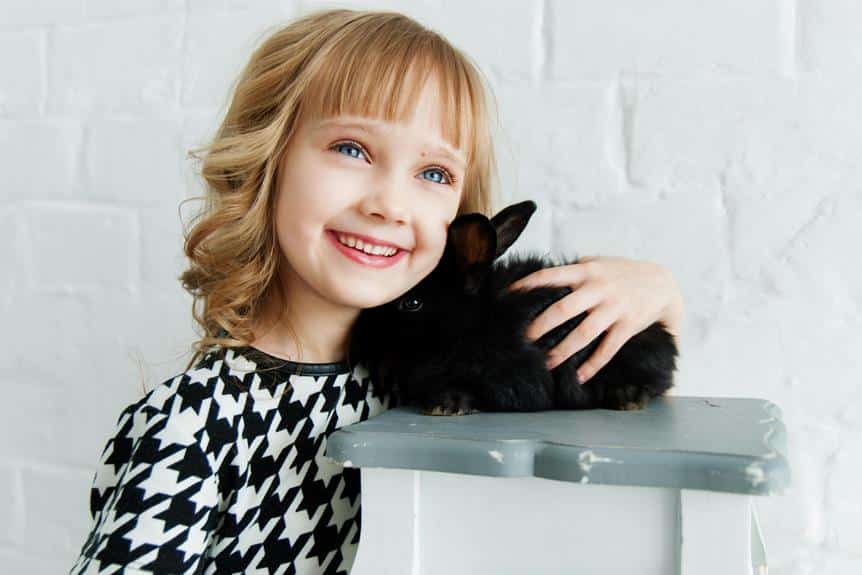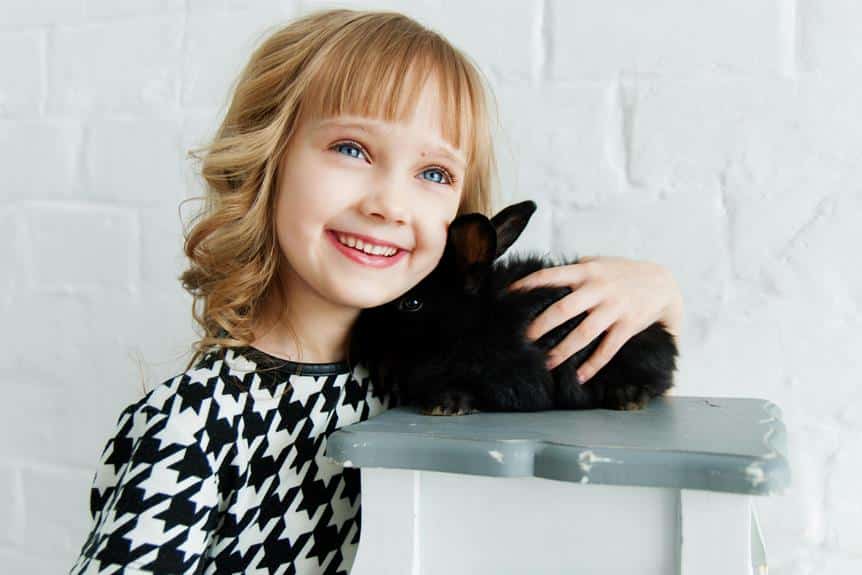Table of Contents
Short Answer: How to Keep Your Pet Rabbit From Eating Too Much
It is important to limit the amount of dry pellets and treats you give your rabbit. They can be unhealthy and contribute to obesity if given in large quantities. Instead, try using some toys to slow down there munching.
Hay is also a great option for your rabbit to nibble on whenever they like. Do not limit the amount of hay you give your rabbit. This is important for their digestion to run smoothly.
Long description of this topic below
Introduction – How to Keep Your Pet Rabbit From Eating Too Much
Keeping your pet rabbit happy and healthy can be a challenge. Rabbits are natural chewers, which means they need plenty of things to gnaw on. Unfortunately, this tendency to over-eat can be harmful to pet rabbits.
A rabbit’s digestive system is very sensitive, and eating too much — or the wrong kind of food — can cause gastric stress or even be fatal. If you want to keep your furry friend in tip-top shape, it’s important that you know how much he’s eating so that you can help him achieve a healthy weight by monitoring his diet. Follow these tips to keep your pet rabbit from overeating.
Why do rabbits overeat?
There are several common reasons why a rabbit may overeat or eat the wrong kinds of foods. First, rabbits are very social and friendly creatures, so you may see your pet trying to befriend other animals.
Rabbits get excited when they see each other, so your pet may decide that he’s going to try to feed his new furry friends. If you have outdoor rabbits, you may even see your pet trying to feed wild animals like birds or squirrels.
Another common reason why rabbits overeat is boredom. If a rabbit doesn’t get enough daily stimulation, he may decide his food is more interesting than his toys and chew toys. Rabbits may also over-eat if they don’t get enough fiber in their diet.
Monitor what your rabbit is eating
The best way to keep an eye on what your rabbit is eating is to feed him a healthy diet. Start by choosing high-quality rabbit pellets, which are packed with essential vitamins, minerals, and fiber.
Your rabbit should have access to fresh hay every day to get the fiber he needs to stay healthy. Don’t feed your bunny table scraps, or he may accidentally eat too many calories or too many of the wrong kinds of food. Keep fresh water near your rabbit’s food and water bowls. You can also use a weight-loss calculator to help you monitor your rabbit’s eating habits.
If your rabbit is overweight, you can also try a special diet to help him slim down. Ask your rabbit’s veterinarian if a special weight-loss diet is right for your furry friend.
Keep an eye on the growth rate
If your rabbit is between the ages of 4 and 6 months and weighs 3 pounds or more, you may want to keep an eye on his growth rate. Rabbits grow very quickly, so you want to make sure your pet is growing at a normal rate.
To monitor growth rate, weigh your rabbit every few weeks, and compare his current weight to his previous weight. If your rabbit is growing too quickly, you may want to cut back on his food intake. If your rabbit is growing too slowly, you can boost his calorie intake by increasing the number of pellets in his diet.
If you see that your rabbit has stopped growing between the ages of 6 and 8 months, you may want to talk to your vet about adding a growth supplement to his diet.
Rotate food types
Not only is it important to rotate the types of food you feed your rabbit, but you also need to rotate the timings of when you feed your pet. Rabbits should have unlimited access to food and water, but they should only be eating at certain times throughout the day.
The best way to feed your rabbit is to offer him pellets in the morning and hay in the evening. If your rabbit is overweight, consider restricting access to pellets and feeding your pet only hay. If your rabbit is underweight or growing too slowly, you may need to offer him more pellets and less hay. You also don’t want to feed the same type of food for long periods of time.
Rabbits eat very quickly — sometimes in as little as five minutes — so it’s important to rotate food types to prevent over-consumption.
Limit treat time
You can help your rabbit realize that food is not a playtime activity by limiting treat time. You want to give your rabbit plenty of chew toys and toys that he can gnaw on, but you also want to be careful not to over-feed treats.
Avoid giving your rabbit any table scraps. If you feed your rabbit treats, make sure they’re high-quality and low in calories. Good treats to give your rabbit include fresh vegetables, hay, alfalfa pellets, apple rings, or pears.
Always make sure you’re limiting the number of treats you give your rabbit. A treat should have very few calories and be very low in sugar. Avoid giving your rabbit sweet treats like chocolate or candy.
Provide exercise opportunities
Rabbits need plenty of exercises to stay healthy, so make sure your pet is getting plenty of opportunities to play and explore. You can also give your rabbit some targeted exercise by setting up a bunny agility course in your backyard or inside your home.
Make sure to provide your rabbit with plenty of daily mental stimulation to keep him from over-eating. If you see your rabbit is over-eating, try cutting back on his exercise time. If your rabbit is overweight, consider cutting back on his exercise time to help him reach a healthier weight.
If your rabbit is growing too slowly, bump up his exercise time to help him reach a normal size.
Conclusion
Keeping your pet rabbit healthy and happy can be a challenge. Rabbits are natural chewers, which means they need plenty of things to gnaw on. Unfortunately, this tendency to over-eat can be harmful to pet rabbits.
A rabbit’s digestive system is very sensitive, and eating too much — or the wrong kind of food — can cause gastric stress or even be fatal. If you want to keep your furry friend in tip-top shape, it’s important that you know how much he’s eating so that you can help him achieve a healthy weight by monitoring his diet.
Follow these tips to keep your pet rabbit from overeating.



